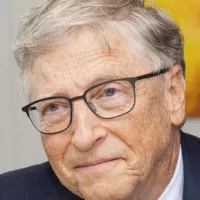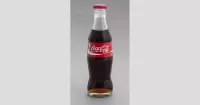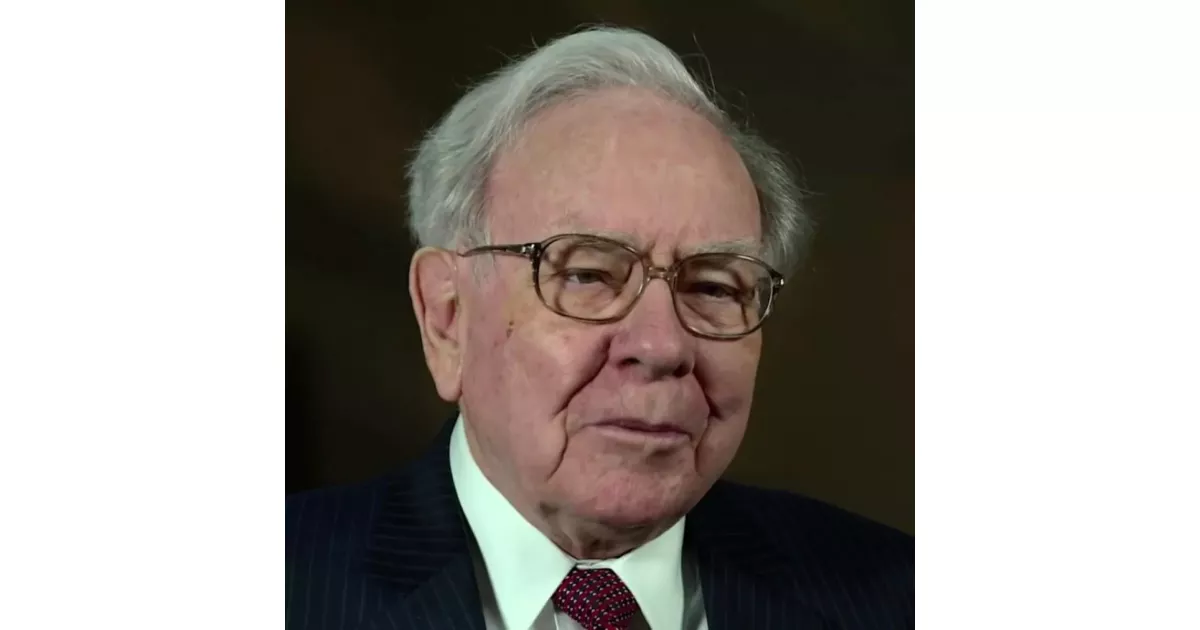Warren Buffett is a highly successful American investor and philanthropist, serving as the chairman and CEO of Berkshire Hathaway. Renowned for his investment acumen, he's considered one of America's most prominent investors. As of May 2025, his estimated net worth of $160.2 billion ranks him as the fifth-richest person globally.
August 30, 1930: Warren Buffett's Birth
On August 30, 1930, Warren Edward Buffett was born in Omaha, Nebraska. He is now an American investor and philanthropist and serves as the chairman and CEO of Berkshire Hathaway.
1942: Father Elected to Congress
In 1942, Warren Buffett's father was elected to the first of four terms in the United States Congress, leading the family to move to Washington, D.C.
1944: First Income Tax Return Deduction
In 1944, Warren Buffett, on his first income tax return, took a $35 deduction for the use of his bicycle and watch on his paper route.
1945: Pinball Machine Business
In 1945, Warren Buffett and a friend bought a used pinball machine for $25 and placed it in a barber shop, eventually owning several machines before selling the business for $1,200.
1947: Matriculated at Wharton School
In 1947, Warren Buffett began studies at the Wharton School of the University of Pennsylvania, but enrolled due to pressure from his father.
1947: Graduated High School
In 1947, Warren Buffett graduated from Woodrow Wilson High School in Washington, D.C.
1949: Ukulele Purchase
In 1949, Warren Buffett purchased a ukulele to impress a girl. Though unsuccessful in winning her over, this sparked a lifelong interest in the instrument that led to his marriage with Susan Thompson.
1950: Rejected by Harvard Business School
In the spring of 1950, Warren Buffet was rejected by Harvard Business School.
1951: Worked at Buffett-Falk & Co.
From 1951, Warren Buffett worked at his father's firm, Buffett-Falk & Co., as an investment salesman.
1951: Graduated from Columbia
In 1951, Warren Buffett earned a Master of Science in economics from Columbia Business School of Columbia University.
1951: First Purchase of GEICO Stock
In 1951, Warren Buffett visited GEICO's headquarters and met Lorimer Davidson, GEICO's vice president, which led to Buffett's first purchase of GEICO stock.
1952: Marriage to Susan Thompson
In 1952, Warren Buffett married Susan Thompson at Dundee Presbyterian Church, marking a significant milestone in his personal life.
1954: Worked at Graham-Newman Corp.
From 1954, Warren Buffett worked at Graham-Newman Corp. as a securities analyst.
1954: Job at Benjamin Graham's Partnership
In 1954, Warren Buffett accepted a job at Benjamin Graham's partnership with a starting salary of $12,000 a year.
1954: Birth of Son Howard
In 1954, Warren Buffett and his wife Susan welcomed their second child, a son named Howard, expanding their family.
1956: General Partner at Investment Partnerships
From 1956, Warren Buffett worked as the general partner at several investment partnerships.
1956: Graham's Retirement
In 1956, Benjamin Graham retired and closed his partnership, leading Warren Buffett to return to Omaha and start his investment partnerships.
1956: Created Buffett Partnership Ltd.
In 1956, Warren Buffett created Buffett Partnership Ltd. after working at Graham-Newman Corp. as a securities analyst.
1957: Operated Investment Partnerships
In 1957, Warren Buffett operated three investment partnerships.
1958: Sanborn Stock Value
In 1958, Sanborn stock sold for $45 per share, but the company's investment portfolio was worth $65 per share.
1958: Birth of Son Peter
In 1958, Warren Buffett and his wife Susan had their third child, a son named Peter, further completing their family.
1958: Purchase of Omaha Home
In 1958, Warren Buffett purchased a five-bedroom stucco house in Omaha for $31,500, where he still resides.
1959: Met Charlie Munger
In 1959, Warren Buffett was introduced to his future partner Charlie Munger during a business luncheon at The Omaha Club.
1961: Investment in Sanborn Map Company
In 1961, Warren Buffett revealed that 35% of his partnership's assets were invested in the Sanborn Map Company and purchased 23% of the company's outstanding shares, eventually obtaining a seat on the board of directors.
1962: Became a Millionaire
In 1962, Warren Buffett became a millionaire with the success of his partnerships, which by then had grown to 11 entities. He also started investing in Berkshire Hathaway.
1965: Took Control of Berkshire Hathaway
In 1965, Warren Buffett's partnerships began purchasing Berkshire Hathaway shares aggressively, paying $14.86 per share, and Buffett took control of Berkshire Hathaway at a board meeting.
1966: Closed Partnership to New Money
In 1966, Warren Buffett closed his investment partnership to new money.
1967: First and Only Dividend Payout
In 1967, Berkshire Hathaway paid out its first and only dividend of 10 cents.
1969: End of Investment Partnerships
In 1969, Warren Buffett ended working as the general partner at several investment partnerships.
1969: Liquidated Partnership
In 1969, Warren Buffett liquidated his investment partnership and transferred the assets to his partners.
1970: Chairman and CEO of Berkshire Hathaway Inc.
From 1970, Warren Buffett worked as chairman and CEO of Berkshire Hathaway Inc.
1970: Became Chairman and Majority Shareholder of Berkshire Hathaway
In 1970, Warren Buffett emerged as the chairman and majority shareholder of Berkshire Hathaway, a textile manufacturing firm his investment firm acquired.
1970: Buffett Presided as Chairman of Berkshire Hathaway
Since 1970, Warren Buffett has presided as the chairman and largest shareholder of Berkshire Hathaway.
1971: Purchase of Vacation Home in Laguna Beach
In 1971, Warren Buffett purchased a vacation home in Laguna Beach, California, for $150,000.
1973: Began Acquiring Stock in Washington Post Company
In 1973, Berkshire Hathaway began to acquire stock in the Washington Post Company.
1974: SEC Investigation
In 1974, the SEC opened a formal investigation into Warren Buffett and Berkshire Hathaway's acquisition of Wesco Financial, though no charges were brought.
1977: Purchase of Buffalo Evening News
In 1977, Berkshire Hathaway indirectly purchased the Buffalo Evening News for $32.5 million, leading to antitrust charges.
1977: Separation from Susan
In 1977, Warren Buffett and his wife Susan began living separately, though they remained married until her death.
1977: Statement About Stocks, Gold, Farmland and Inflation
In 1977, Warren Buffett made a statement regarding stocks, gold, farmland and inflation.
1977: Buffett Quote in Fortune
In 1977, Warren Buffett was quoted in Fortune magazine.
1977: Astrid Menks Moves In
In 1977, after Susan Buffett moved to San Francisco to pursue her singing career, Astrid Menks moved in with Warren Buffett.
1978: Charlie Munger Joined Berkshire Hathaway
In 1978, Charlie Munger joined Warren Buffett as vice-chairman of Berkshire Hathaway.
1982: Buffalo Courier-Express Folded
In 1982, The Buffalo Courier-Express folded after antitrust charges related to Berkshire's purchase of the Buffalo Evening News.
March 18, 1985: Capital Cities Purchased ABC
On March 18, 1985, Capital Cities announced a $3.5 billion purchase of ABC, with Buffett helping to finance the deal in return for a 25% stake in the combined company.
1985: First Television Appearance on Adam Smith's Money World
In 1985, Warren Buffet made his first television appearance on Adam Smith's Money World.
1985: Sold Last of Textile Mills
In 1985, Warren Buffett sold the last of the textile mills that had been the core business of Berkshire Hathaway.
1987: Quotation during RJR Nabisco Takeover Fight
During the RJR Nabisco, Inc., hostile takeover fight in 1987, Buffett was quoted as telling John Gutfreund.
1987: Purchased Stake in Salomon Inc.
In 1987, Berkshire Hathaway purchased a 12% stake in Salomon Inc., making Warren Buffett a director.
1988: Began Buying Coca-Cola Stock
In 1988, Warren Buffett began buying The Coca-Cola Company stock, eventually purchasing up to 7% of the company for $1.02 billion. It would turn out to be one of Berkshire's most lucrative investments and one which it still holds.
1989: Purchase of Private Jet
In 1989, Warren Buffett purchased a private jet for nearly $6.7 million and named it "The Indefensible," later renamed "The Indispensable".
1990: Salomon Brothers Scandal
In 1990, a scandal involving John Gutfreund surfaced at Salomon Brothers, where a rogue trader was submitting bids in excess of Treasury rules.
August 1991: Gutfreund left the company
In August 1991, John Gutfreund left the Salomon Brothers company due to the rogue trader scandal.
1994: Statement at Berkshire Hathaway Meeting about Investments in Tobacco
Speaking at Berkshire Hathaway Inc.'s 1994 annual meeting, Warren Buffett shared his perspective on investments in tobacco.
1996: Buffett's Letter to Berkshire Hathaway Shareholders
In a 1996 letter to Berkshire Hathaway shareholders, Warren Buffett stated "If you aren't willing to own a stock for ten years, don't even think about owning it for ten minutes"
1998: Coca-Cola Peaked at $86
In 1998, The Coca-Cola Company, one of Berkshire's major holdings, peaked at $86, raising questions about when to sell such holdings.
1998: Acquired General Re
In 1998, Warren Buffett acquired General Re (Gen Re) as a subsidiary, which presented difficulties due to inadequate underwriting standards.
1998: Critique of Gold as an Investment
In a 1998 address at Harvard, Warren Buffett expressed criticism of gold as an investment, stating that it is based primarily on its non-productive nature.
November 1999: Buffett Warns of Unrealistic Expectations
In his November 1999 Fortune article, Warren Buffett warned of investors' unrealistic expectations.
1999: Top Money Manager of the Twentieth Century
In 1999, Warren Buffett was named the Top Money Manager of the Twentieth Century in a survey by the Carson Group, surpassing Peter Lynch and John Templeton.
1999: Buffett Quote in Fortune
In 1999, Warren Buffett was quoted in Fortune magazine.
1999: Sale of Private Jet
Prior to mid-1999, Warren Buffett sold the private jet named "The Indefensible" and began utilizing Berkshire's flight services.
2000: Comparison of Inheritance Tax to Olympic Team Selection
In 2020, Buffett stated that repealing inheritance tax would be like "choosing the 2020 Olympic team by picking the eldest sons of the gold-medal winners in the 2000 Olympics".
2001: Auction of Lincoln Town Car
In 2001, Warren Buffett owned a Lincoln Town Car, which he later auctioned off in 2006.
2002: Buffett Enters Currency Contracts
In 2002, Buffett entered into $11 billion worth of forward contracts to deliver U.S. dollars against other currencies.
2002: Entry into Foreign Currency Market
In 2002, Buffett entered the foreign currency market for the first time due to the trade deficit.
2002: Involved with Maurice R. Greenberg at AIG
In 2002, Warren Buffett became involved with Maurice R. Greenberg at AIG, after which Gen Re provided reinsurance.
2002: Advisor to Nuclear Threat Initiative
In 2002, Warren Buffett began serving as an advisor to the Nuclear Threat Initiative in Washington.
2003: Financial Advisor to Arnold Schwarzenegger
In 2003, Warren Buffett served as a financial advisor to Republican candidate Arnold Schwarzenegger during the California gubernatorial election.
July 2004: Death of Susan Buffett
In July 2004, Susan Buffett, Warren Buffett's wife, passed away, marking the end of their marriage.
2004: Advocacy for Stock Option Expensing
At the 2004 annual meeting, Buffett advocated for stock option expensing on corporate income statements and criticized a bill before Congress that would consider only some company-issued stock options compensation as an expense.
2004: Bequest to Buffett Foundation
In 2004, the bulk of Susan Buffett's estate, valued at $2.6 billion, went to the Buffett Foundation.
2004: Buffett Discusses Difficulties of Knowing When to Sell
In the 2004 annual report, Warren Buffett discussed the challenges of knowing when to sell company holdings.
March 15, 2005: Greenberg Resigns from AIG
On March 15, 2005, the AIG board compelled Greenberg to resign from his position as chairman and CEO following allegations by New York state regulators that AIG engaged in questionable transactions and improper accounting practices.
2005: Reduced Stake in Foreign Currency Market
In 2005, Buffett substantially reduced his stake in the foreign currency market as changing interest rates increased the costs of holding currency contracts. Buffett remained bearish on the dollar and looked to acquire companies with substantial foreign revenues.
February 9, 2006: AIG Pays $1.6 Billion Fine
On February 9, 2006, AIG agreed to pay a $1.6 billion fine as a result of regulatory scrutiny.
April 2006: Gain on Currency Contracts
By April 2006, Buffett's total gain on forward contracts to deliver U.S. dollars against other currencies exceeded $2 billion.
June 2006: Buffett Announces Charitable Giving
In June 2006, Buffett announced that he would gradually donate 85% of his Berkshire holdings to five foundations, with the largest portion going to the Bill and Melinda Gates Foundation, starting in July 2006.
June 2006: Charitable Giving Plan Announcement
In June 2006, Warren Buffett announced a plan to give 83% of his fortune to charity, primarily to the Bill & Melinda Gates Foundation.
June 23, 2006: Pledge to Gates Foundation
On June 23, 2006, Warren Buffett pledged the equivalent of 10 million Berkshire Hathaway Class B shares (worth approximately $30.7 billion) to the Bill & Melinda Gates Foundation, making it the largest charitable donation in history.
July 2006: Start of Charitable Donations
Starting in July 2006, Warren Buffett began gradually giving away 85% of his Berkshire holdings to five foundations in annual gifts of stock, with the largest contribution going to the Bill and Melinda Gates Foundation.
December 2006: Tech Habits
In December 2006, it was reported that Warren Buffett did not carry a mobile phone or have a computer at his desk and drove his own Cadillac DTS.
2006: Remarks on Tax Fairness
In 2006, Buffett stated that he paid only 19% of his income in federal taxes, while his employees paid 33%, despite earning much less. He questioned the fairness of this situation, stating, "There's class warfare, all right, but it's my class, the rich class, that's making war, and we're winning."
2006: Auction of 2001 Lincoln Town Car
In 2006, Warren Buffett auctioned his 2001 Lincoln Town Car on eBay to raise money for Girls, Inc.
2006: Disowning of Nicole Buffett
In 2006, Warren Buffett disowned his son Peter's adopted daughter, Nicole, after she participated in a documentary about economic inequality.
2006: Sponsorship of Buffett Cup
In 2006, Warren Buffett sponsored a bridge match called the Buffett Cup, modeled after the Ryder Cup in golf.
2006: Annual Salary
In 2006, Warren Buffett's annual salary was about $100,000, which is a relatively small amount compared to other senior executives in similar companies.
2006: Marriage to Astrid Menks
In 2006, on his 76th birthday, Warren Buffett married his longtime companion, Astrid Menks, who had been living with him since 1977.
2007: Support for Bo Pelini Hire
Following the 2007 season, Warren Buffett supported the hire of Bo Pelini as Nebraska's football coach, expressing a need for change.
2007: Search for Successor
In 2007, Buffett announced in a letter to shareholders that he was seeking a younger individual or individuals to succeed him in running his investment business.
2007: Testimony on Preserving the Estate Tax
In 2007, Buffett testified before the Senate, urging them to preserve the estate tax to avoid a plutocracy. Some critics argued Berkshire Hathaway benefited from the estate tax in past business dealings and had developed and marketed insurance policies to protect policy holders against future estate tax payments.
2007: Cancellation of Coal-Fired Power Plants
In 2007, Buffett's PacifiCorp, a subsidiary of his MidAmerican Energy Company, canceled six proposed coal-fired power plants, including Utah's Intermountain Power Project Unit 3 and Jim Bridger Unit 5, due to pressure from regulators and citizen groups.
2007: Auction Luncheon for Glide Foundation
In 2007, Warren Buffett auctioned a luncheon with himself that raised $650,100 for the Glide Foundation.
2007: Buffett's Bet on Index Funds
In 2007, Warren Buffett made a bet with numerous managers that a simple S&P 500 index fund would outperform hedge funds that charge exorbitant fees.
2007: Time's 100 Most Influential People
In 2007, Warren Buffett was listed among Time's 100 Most Influential People in the world, recognizing his global impact.
2007: Criticism During Subprime Mortgage Crisis
In 2007, during the subprime mortgage crisis, Warren Buffett faced criticism for allocating capital too early, which resulted in suboptimal deals.
July 2, 2008: Fundraiser for Obama Campaign
On July 2, 2008, Warren Buffett attended a $28,500 per plate fundraiser in Chicago for Barack Obama's presidential campaign.
September 23, 2008: Berkshire Hathaway Acquires Goldman Sachs Stock
On September 23, 2008, Berkshire Hathaway acquired 10 percent of perpetual preferred stock of Goldman Sachs.
October 2008: Buffett Buys General Electric Preferred Stock
In October 2008, Buffett agreed to buy General Electric (GE) preferred stock with special incentives, including an option to buy three billion shares of GE stock and a 10% dividend.
October 2008: Investment in BYD Company
In October 2008, Buffett invested $230 million for 10% of battery maker BYD Company, which also operates an electric automobile manufacturing subsidiary. In less than one year, the investment reaped over 500% return.
October 2008: Numerous Books in Print with Buffett's Name
In October 2008, USA Today reported at least 47 books were in print with Warren Buffett's name in the title. Buffett said that his own personal favorite is a collection of his essays called The Essays of Warren Buffett, which he described as "a coherent rearrangement of ideas from my annual report letters".
2008: Buffett Becomes Richest Person
In 2008, Warren Buffett became the richest person in the world with a net worth estimated at $62 billion by Forbes and $58 billion by Yahoo, surpassing Bill Gates.
2008: Total Compensation
In 2008, Warren Buffett earned a total compensation of $175,000, including a base salary of $100,000.
2008: Buffett's Opinion Piece and Market Downturn
In 2008, Warren Buffett published an opinion piece in the New York Times with the message "Buy American. I am." He also referred to the downturn in the financial sector that started in 2007 as "poetic justice."
2008: Richest Person in the World
In 2008, Warren Buffett was ranked by Forbes as the richest person in the world, with an estimated net worth of approximately $62 billion.
February 2009: Buffett Sells Shares from Personal Portfolio
In February 2009, Buffett sold some Procter & Gamble Co. and Johnson & Johnson shares from his personal portfolio, leading to questions about mistiming and the wisdom of keeping some of Berkshire's major holdings.
March 2009: Buffett Comments on Economy and Inflation
In March 2009, Warren Buffett stated in a cable television interview that the economy had "fallen off a cliff" and expressed fears of a re-emergence of 1970s-style inflation.
June 2009: Berkshire Hathaway Ranked as Eighteenth Largest Corporation
As of June 2009, Berkshire Hathaway was the eighteenth largest corporation in the world based on market capitalization in the Financial Times Global 500.
2009: Gates Regains Top Spot on Forbes List
In 2009, Bill Gates regained the top position on the Forbes list of richest people, while Warren Buffett shifted to second place. Both men's values dropped.
2009: Critique of U.S. Medical Industry Incentives
In 2009, Buffett criticized the U.S. medical industry's incentive structure, arguing that fee-for-service reimbursements to doctors lead to overutilization and unnecessary care. He referenced Atul Gawande's article in the New Yorker, which documented variations in Medicare expenditures between McAllen and El Paso, Texas. He also raised concerns about lobbying efforts by the medical industry to maintain income.
2009: Buffett Divests from ConocoPhillips
In 2009, Warren Buffett divested his failed investment in ConocoPhillips, sharing his reasoning with Berkshire investors.
2009: Meeting with Billionaires to Discuss Global Issues
In 2009, Warren Buffett met with other billionaires, including Oprah Winfrey, Michael Bloomberg and David Rockefeller Jr., to discuss healthcare, education, and slowing population growth. This group, referred to as "The Good Club", had given away $45 billion to philanthropic causes. Buffett is a long-time supporter of family planning. The Buffett Foundation has given over $1.5 billion to abortion research to include $427 million to Planned Parenthood.
2009: Buffett Sold Shares of Johnson and Johnson
In 2009, Warren Buffett sold shares of Johnson & Johnson, part of a series of sales between 2009 and 2012 that totaled $80 million.
2009: Election to American Philosophical Society
In 2009, Warren Buffett was elected to the American Philosophical Society, recognizing his contributions to intellectual pursuits.
2009: Mention in Ralph Nader's Book
In 2009, Warren Buffett was featured in Ralph Nader's novel, "Only the Super Rich Can Save Us", which depicts him leading a movement of billionaires to improve America.
2009: Honorary Assistant Coach
In 2009, Warren Buffett was named an honorary assistant coach and watched the Nebraska game against Oklahoma from the sideline.
2009: Second Richest Man in the United States
In 2009, after donating billions to charity, Warren Buffett was ranked as the second richest man in the United States with a net worth of $37 billion, surpassed only by Bill Gates.
June 2010: Buffett Defends Credit-Rating Agencies
In June 2010, Warren Buffett defended the credit-rating agencies for their role in the U.S. financial crisis.
December 9, 2010: Signing of the Giving Pledge
On December 9, 2010, Warren Buffett, Bill Gates, and Mark Zuckerberg signed the "Gates-Buffett Giving Pledge," promising to donate at least half of their wealth to charity and inviting others to join.
2010: Criticism of U.S. Healthcare Costs
In 2010, Warren Buffett criticized the U.S. healthcare system, stating that it was unsustainable to devote 17% of the GDP to healthcare expenditure. He compared healthcare costs to a tapeworm that compromises U.S. economic competitiveness. While acknowledging the U.S. excels in extreme, costly life-prolonging measures, he noted other countries achieve better healthcare value with lower spending.
2010: Founded the Giving Pledge
In 2010, Warren Buffett founded the Giving Pledge with Bill Gates, encouraging billionaires to donate at least half of their wealth to philanthropic causes.
2010: Cameo in Wall Street: Money Never Sleeps
In 2010, Warren Buffett made a cameo appearance in the film Wall Street: Money Never Sleeps.
2010: Most Influential Global Thinker
In 2010, Warren Buffett, along with Bill Gates, was named the most influential global thinker in Foreign Policy's report, acknowledging his impact on global issues.
2010: Settlement with Gen Re
In 2010, the U.S. government reached a $92 million settlement with Gen Re, a Berkshire Hathaway subsidiary, to avoid prosecution in the AIG case. Gen Re also committed to implementing corporate governance concessions.
2010: Merger with Burlington Northern Santa Fe Railway Closed
In 2010, the merger with the Burlington Northern Santa Fe Railway (BNSF) closed upon BNSF shareholder approval during Q1. This deal was valued at approximately $44 billion.
March 18, 2011: Goldman Sachs Approved to Buy Back Berkshire's Preferred Stock
On March 18, 2011, Goldman Sachs was given Federal Reserve approval to buy back Berkshire's preferred stock in Goldman.
November 2011: Buffett Invests in IBM
In November 2011, it was announced that over the previous eight months, Buffett had bought 64 million shares of International Business Machine Corp (IBM) stock, worth around $11 billion.
2011: Presidential Medal of Freedom
In 2011, President Barack Obama awarded Warren Buffett the Presidential Medal of Freedom, honoring his significant contributions to the nation.
2011: Acquisition of Omaha World Herald
In 2011, Warren Buffett's company acquired the Omaha World Herald, which he reads daily.
April 11, 2012: Diagnosis of Prostate Cancer
On April 11, 2012, Warren Buffett was diagnosed with stage I prostate cancer during a routine test.
May 2012: Avoidance of High-Technology Stocks
In May 2012, Buffett explained he had avoided buying stock in high-technology companies like Facebook and Google because they are complex and difficult to understand. He also advised that IPO's of new stock issues are almost always bad investments and that investors should look for companies that will have good value in ten years.
May 2012: Buffett's Acquisition of Media General Announced
In May 2012, Warren Buffett's acquisition of Media General, consisting of 63 newspapers in the south-eastern U.S., was announced. The company was the second news print purchase made by Buffett in one year.
September 15, 2012: Completion of Radiation Treatment
On September 15, 2012, Warren Buffett announced that he had completed the full 44-day radiation treatment cycle, expressing relief and gratitude.
2012: Buffett Sold Shares of Walmart and Wells Fargo
In 2012, Warren Buffett sold shares of Walmart and Wells Fargo, part of a series of sales between 2009 and 2012 that totaled $80 million.
May 2013: Buffett Discusses Newspaper Acquisitions
At the Berkshire shareholders meeting in May 2013, Warren Buffett explained that he did not expect to "move the needle" at Berkshire with newspaper acquisitions but anticipated an annual return of 10 percent.
July 18, 2013: Press of Atlantic City Sold to BH Media Group
On July 18, 2013, Interim publisher James W. Hopson announced that the Press of Atlantic City would be sold to Buffett's BH Media Group by ABARTA.
September 2013: Net Worth
As of September 2013, Warren Buffett's net worth had risen to $58.5 billion, solidifying his position as one of the wealthiest individuals.
September 2013: Buffett Presents to Georgetown University Students
In late September 2013, during a presentation to Georgetown University students in Washington, D.C., Warren Buffett compared the U.S. Federal Reserve to a hedge fund and discussed the issue of wealth equality.
December 9, 2013: Berkshire Hathaway Purchase of Shares in USG Corporation
On December 9, 2013 Berkshire Hathaway purchased shares in USG Corporation.
2013: Use of Nokia Flip Phone and Email Use
In 2013, Warren Buffett had an old Nokia flip phone and had sent only one email in his life.
August 14, 2014: Berkshire Hathaway Shares Hit $200,000
On August 14, 2014, the price of Berkshire Hathaway's shares hit $200,000 a share for the first time, capitalizing the company at $328 billion.
August 20, 2014: Berkshire Hathaway Fined for Reporting Violation
On August 20, 2014, Berkshire Hathaway was fined $896,000 for failing to report as required the December 9, 2013, purchase of shares in USG Corporation.
December 16, 2015: Endorsement of Hillary Clinton
On December 16, 2015, Warren Buffett publicly endorsed Democratic candidate Hillary Clinton for president.
2015: Cameo in Entourage
In 2015, Warren Buffett made a cameo appearance in the TV series Entourage.
August 1, 2016: Challenge to Donald Trump
On August 1, 2016, Warren Buffett challenged Donald Trump to release his tax returns, increasing scrutiny on the presidential candidate.
October 10, 2016: Release of Tax Return
On October 10, 2016, Warren Buffett released his own tax return after a reference to him in the second presidential debate, revealing he paid $1.85 million in federal income taxes on an adjusted gross income of $11.6 million in 2015.
April 2017: Likeness on Cherry Coke Products
In April 2017, Warren Buffett agreed to have his likeness placed on Cherry Coke products in China without compensation.
2017: Index Fund Outperforms Hedge Funds
By 2017, Warren Buffett's chosen index fund was outperforming every hedge fund that took the bet against him, proving his point.
2017: Subject of HBO Documentary 'Becoming Warren Buffett'
In 2017, Warren Buffett was the subject of the HBO documentary feature Becoming Warren Buffett.
January 2018: Warning About Cryptocurrency Craze
In January 2018, Warren Buffet said the recent craze over Bitcoin and other cryptocurrencies would not end well, adding that "when it happens or how or anything else, I don't know;" and later that year calling it, "rat poison squared." He said he would not take a short position on bitcoin futures.
2018: Preferred Search Engine
At the 2018 Berkshire Hathaway's shareholder meeting, Warren Buffett stated that he uses Google as his preferred search engine.
2018: Sale of Laguna Beach Vacation Home
In 2018, Warren Buffett sold his vacation home in Laguna Beach, California, for $7.5 million, which he had purchased in 1971 for $150,000.
2018: Forbes' List of Billionaires
In 2018, after donating almost $3.4 billion, Warren Buffett was ranked 3rd in Forbes' List of Billionaires.
February 2020: Switch to iPhone 11
In February 2020, Warren Buffett revealed in a CNBC interview that he had traded his flip phone for an iPhone 11.
2020: Comparison of Inheritance Tax to Olympic Team Selection
In 2020, Buffett stated that repealing inheritance tax would be like "choosing the 2020 Olympic team by picking the eldest sons of the gold-medal winners in the 2000 Olympics".
2020: Decision on Voting for Donald Trump
Warren Buffett stated he would judge President Donald Trump by his results on national safety, economic growth, and economic participation when deciding if he would vote for him in the 2020 presidential election.
June 2021: Comments on the Economic Impact of COVID-19
In a June 2021 interview with CNBC, Warren Buffet said that the economic impact of the COVID-19 pandemic has increased economic inequality and bemoaned that most people are unaware that "hundreds of thousands or millions" of small businesses have been negatively impacted. He also stated that the markets and the economy will likely be unpredictable well into the post-pandemic recovery period, even with the Biden administration and the United States Federal Reserve having a plan in place. He said the unpredictability and the effects of COVID-19 are far from over.
June 23, 2021: Resignation as Trustee of Gates Foundation
On June 23, 2021, Warren Buffett announced his resignation as a trustee of the Gates Foundation, marking a shift in his philanthropic strategy.
November 2022: Donation to Charitable Foundations
In November 2022, Warren Buffett donated $750 million in Berkshire Hathaway shares to four charitable foundations run by his children.
2022: Reconciliation with Nicole Buffett
By 2022, Warren Buffett and his adopted granddaughter Nicole had reconciled, mending their relationship.
September 2023: Death of Jimmy Buffett
In September 2023, Jimmy Buffett, a longtime friend of Warren Buffett, passed away. The two referred to each other as 'Uncle Warren' and 'Cousin Jimmy' despite not being related by blood.
2023: Total Charitable Donations
As of 2023, Warren Buffett has given over $50 billion to charitable causes, marking a significant milestone in his philanthropic efforts.
2023: Allegations of Conflict of Interest
In 2023, a ProPublica article alleged that Warren Buffett made equity trades in his personal portfolio involving companies that Berkshire Hathaway bought or sold during the same or prior quarter, raising conflict of interest concerns.
2024: Partnership Value in 2024
In 1962, Buffett's partnerships held nearly $7.2 million, of which more than $1,025,000 (equivalent to $10,650,000 in 2024) belonged to Buffett.
2024: Value of Omaha Home in 2024
In 2024, the equivalent value of Warren Buffett's Omaha home (purchased in 1958) is $352,658.
May 3, 2025: Requested Board to Appoint Greg Abel as CEO
On May 3, 2025, at Berkshire Hathaway's investor conference, Warren Buffett requested that the board appoint Greg Abel to succeed him as the company's chief executive officer by the year's end.
May 5, 2025: Greg Abel Appointed President and CEO
On May 5, 2025, Berkshire Hathaway announced the appointment of Greg Abel as president and CEO, effective January 1, 2026, with Warren Buffett remaining chairman.
May 2025: Buffett's Net Worth
In May 2025, Forbes estimated Warren Buffett's net worth at US$160.2 billion, making him the fifth-richest individual in the world.
June 2025: Donation to Charitable Foundations
In June 2025, Warren Buffett donated $6 billion in Berkshire Hathaway shares to five charitable foundations, predominantly to the Gates Foundation.
January 1, 2026: Abel Assumes Role of CEO
On January 1, 2026, Greg Abel assumed the role of president and CEO of Berkshire Hathaway, succeeding Warren Buffett, who remained chairman.
Mentioned in this timeline

Bill Gates an American businessman and philanthropist revolutionized personal computing...

Donald John Trump is an American politician media personality and...

Mark Zuckerberg is an American businessman and programmer best known...

Coca-Cola is a globally recognized cola soft drink produced by...
Home Box Office HBO is an American pay television service...

Barack Obama the th U S President - was the...
Trending

38 minutes ago Storm Causes Power Outages Across Central Coast and SLO County, Bringing Down Trees

2 hours ago Iva Jovic triumphs over Rakhimova in Dubai, reveals Pegula observation.

2 hours ago Andreeva vs. Cristian: WTA Dubai 2026 Prediction, Odds, and Match Preview.

2 hours ago Mirra Andreeva embraces attention, aims Dubai title defense, draws inspiration from LeBron James.

3 hours ago Severe Thunderstorm Warning Issued for Central California; Funnel Clouds Possible, Gusty Showers Expected

3 hours ago Iva Jovic Observed Jessica Pegula; Jovic Wins in Dubai First Round.
Popular

Jesse Jackson is an American civil rights activist politician and...
Randall Adam Fine is an American politician a Republican who...

Pam Bondi is an American attorney lobbyist and politician currently...

Barack Obama the th U S President - was the...

Kid Rock born Robert James Ritchie is an American musician...

XXXTentacion born Jahseh Dwayne Ricardo Onfroy was a controversial yet...


